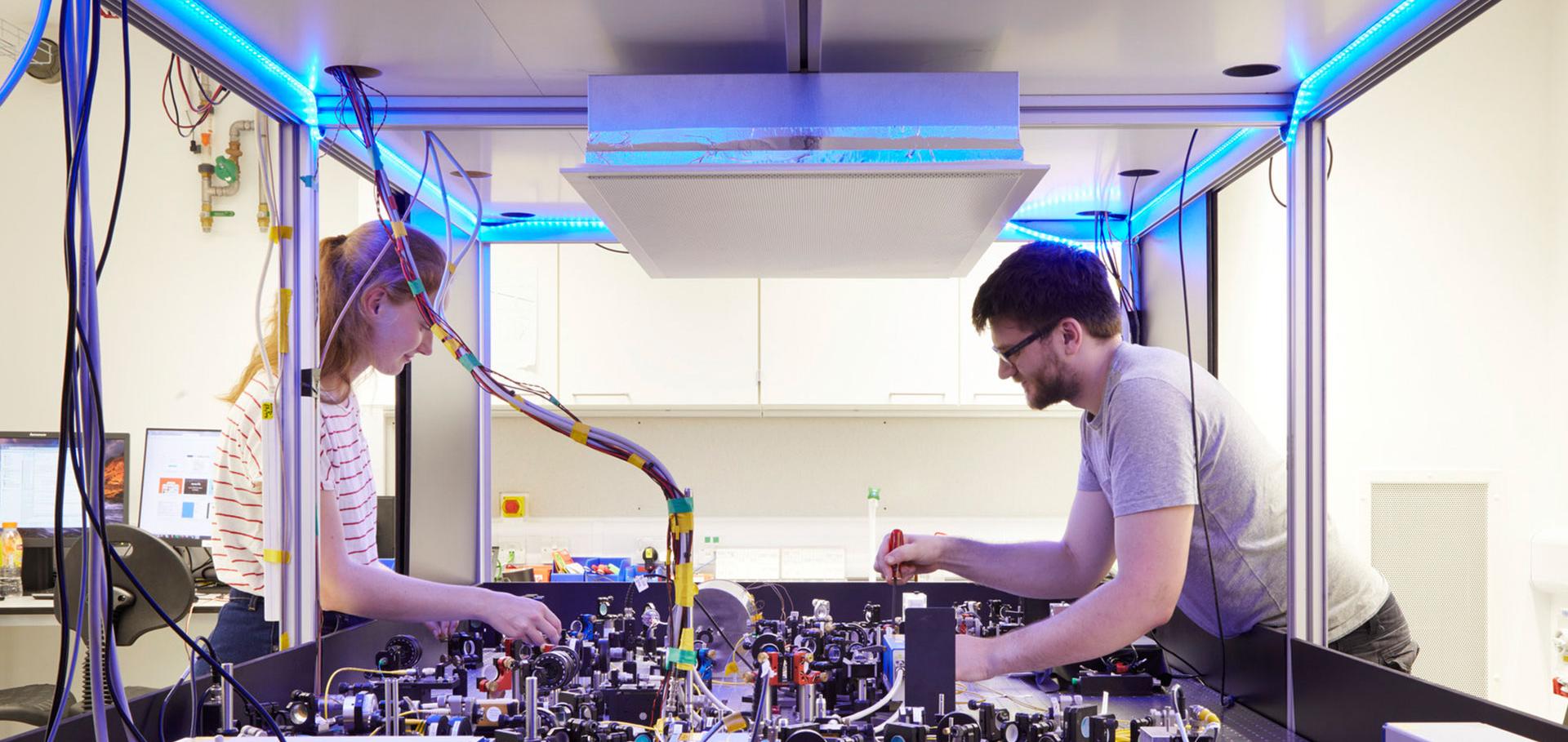Spatially-resolved common-path high-order harmonic interferometry
Optics Letters Optical Society of America 43:21 (2018) 5275-5278
Abstract:
Spatially resolved interference is observed between high-order harmonics generated in two longitudinally separated gas targets. High-contrast modulations in the intensity of each harmonic order up to the cutoff are observed on-axis in the far field of the source as the separation between the gas targets is increased. For low-order harmonics, additional off-axis modulations are observed, which are attributed to the interference between the contributions from the long quantum trajectories from each gas target. The inherent synchronization of this setup offers the prospect for high-stability metrology of quantum states with ultrafast temporal resolutions.High-birefringence direct UV-written waveguides for use as heralded single-photon sources at telecommunication wavelengths.
Optics Express Optica Publishing Group 26:19 (2018) 24678-24686
Efficient Classical Algorithm for Boson Sampling with Partially Distinguishable Photons.
Phys Rev Lett 120:22 (2018) 220502-220502
Abstract:
We demonstrate how boson sampling with photons of partial distinguishability can be expressed in terms of interference of fewer photons. We use this observation to propose a classical algorithm to simulate the output of a boson sampler fed with photons of partial distinguishability. We find conditions for which this algorithm is efficient, which gives a lower limit on the required indistinguishability to demonstrate a quantum advantage. Under these conditions, adding more photons only polynomially increases the computational cost to simulate a boson sampling experiment.Quantum interference beyond the fringe.
Science (New York, N.Y.) 358:6366 (2017) 1001-1002
Separable and Inseparable Quantum Trajectories
Physical Review Letters American Physical Society (APS) 119:17 (2017) 170401


